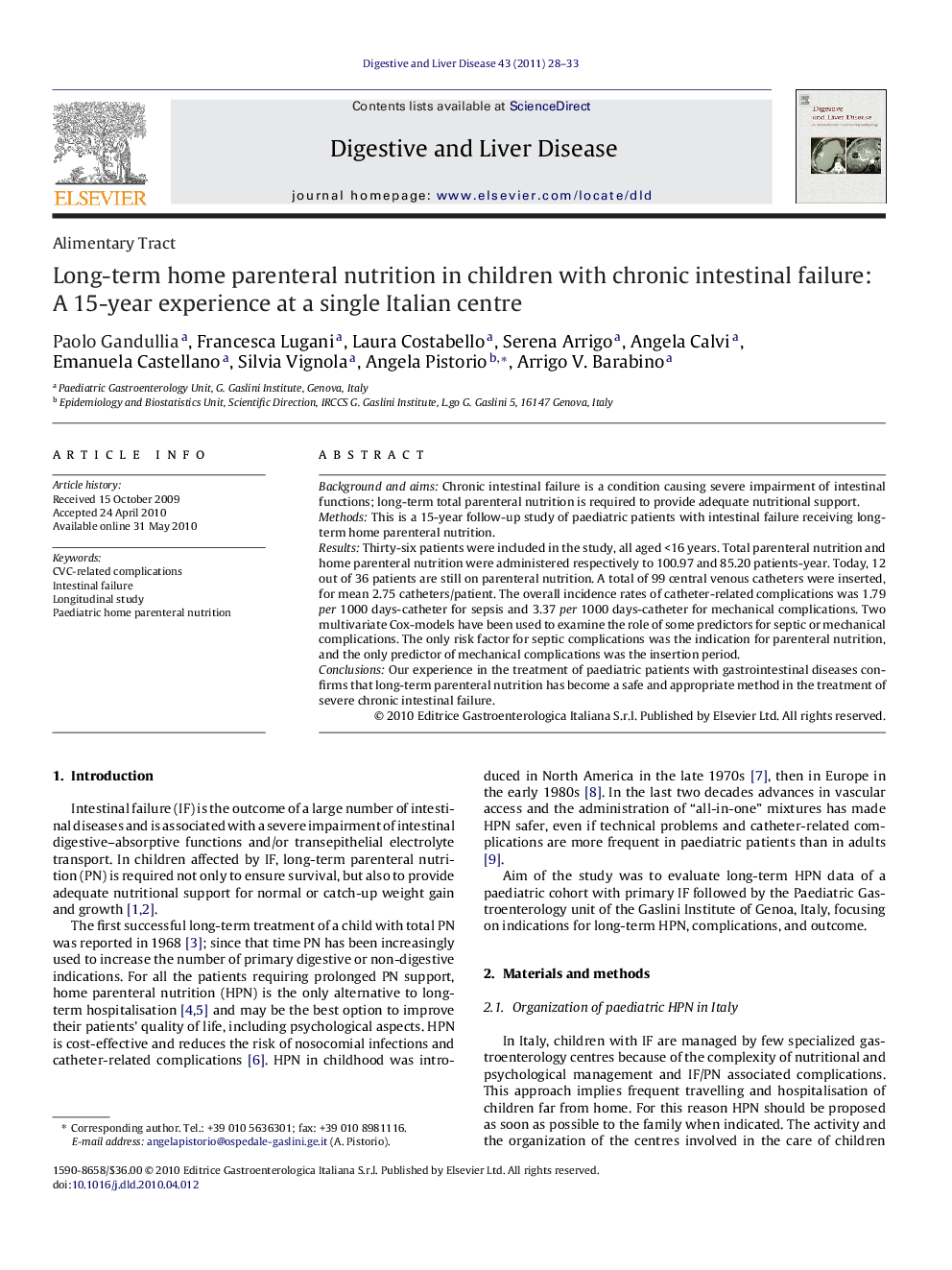| Article ID | Journal | Published Year | Pages | File Type |
|---|---|---|---|---|
| 3264986 | Digestive and Liver Disease | 2011 | 6 Pages |
Background and aimsChronic intestinal failure is a condition causing severe impairment of intestinal functions; long-term total parenteral nutrition is required to provide adequate nutritional support.MethodsThis is a 15-year follow-up study of paediatric patients with intestinal failure receiving long-term home parenteral nutrition.ResultsThirty-six patients were included in the study, all aged <16 years. Total parenteral nutrition and home parenteral nutrition were administered respectively to 100.97 and 85.20 patients-year. Today, 12 out of 36 patients are still on parenteral nutrition. A total of 99 central venous catheters were inserted, for mean 2.75 catheters/patient. The overall incidence rates of catheter-related complications was 1.79 per 1000 days-catheter for sepsis and 3.37 per 1000 days-catheter for mechanical complications. Two multivariate Cox-models have been used to examine the role of some predictors for septic or mechanical complications. The only risk factor for septic complications was the indication for parenteral nutrition, and the only predictor of mechanical complications was the insertion period.ConclusionsOur experience in the treatment of paediatric patients with gastrointestinal diseases confirms that long-term parenteral nutrition has become a safe and appropriate method in the treatment of severe chronic intestinal failure.
